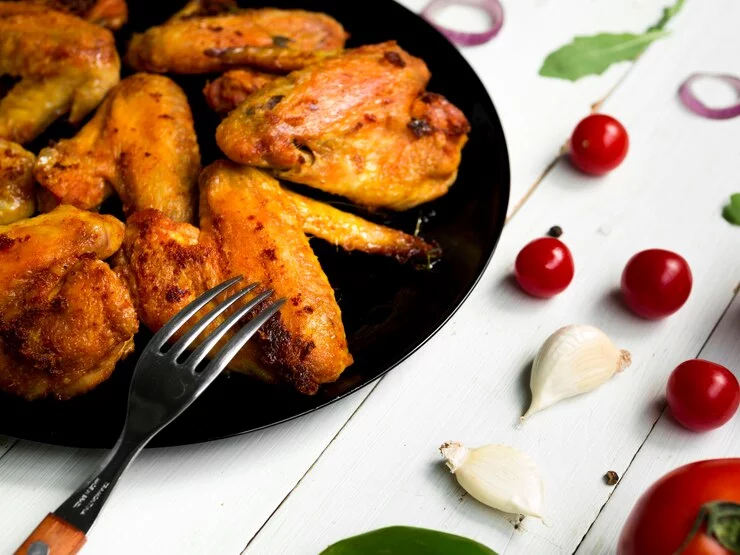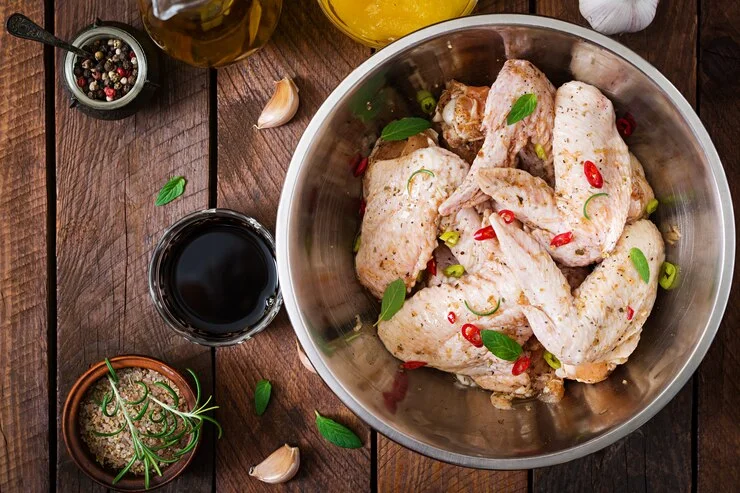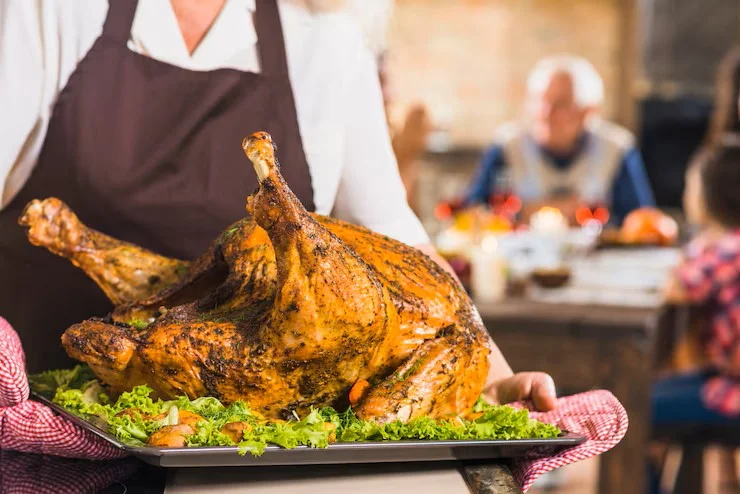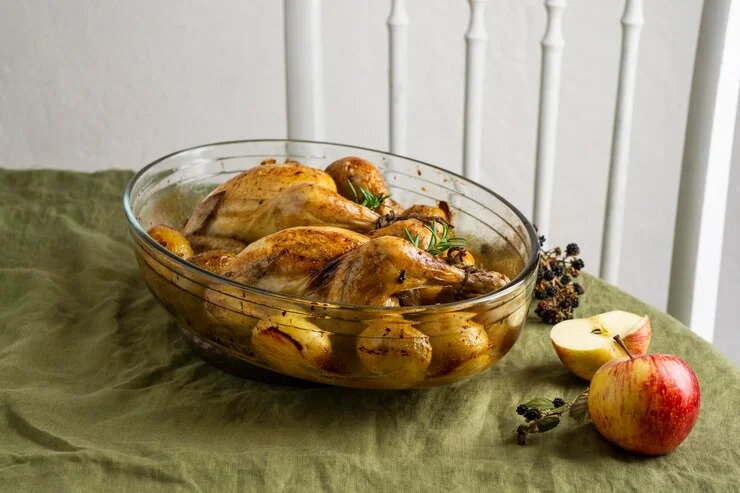Table of Contents
How long cooked chicken stay in the fridge?
Introduction
Understanding how long cooked chicken can be refrigerated is critical to maintaining both food safety and quality. Cooked chicken, a versatile and popular ingredient in many dishes, must be stored properly to avoid food borne illnesses and ensure that it remains fresh and tasty. In this comprehensive guide, we’ll review recommended storage times for cooked chicken, best refrigeration practices, signs of spoilage, and tips for freezing. Source

Understanding the Shelf Life of Cooked Chicken
1. Safe storage time for cooked chicken
Cooked chicken should be refrigerated and consumed within 3-4 days to ensure safety and quality. According to the USDA, this time frame helps prevent the growth of harmful bacteria that can cause food borne illnesses. After this period, the risk of bacterial contamination increases, which can lead to food poisoning.
2. Factors Affecting Shelf Life
Several factors can affect how long cooked chicken is safe to eat:
- Temperature: The refrigerator should be maintained at 40°F (4°C) or less. Temperatures above this can cause bacteria to grow more quickly, reducing the safety and longevity of your cooked chicken.
- Storage Conditions: Proper storage is key. Cooked chicken should be stored in airtight containers or wrapped tightly with plastic wrap or aluminum foil to prevent exposure to air, which can cause spoilage.
- Initial Quality: The fresher the chicken is cooked, the better it will keep in the fridge. Chicken that is on the verge of spoiling before it is cooked will not last long after cooking.
Best Ways to Store Cooked Chicken

1. Chill chicken thoroughly before refrigerating
To prevent bacterial growth, it is important to cool cooked chicken to room temperature before refrigerating. However, you should not leave it for more than 2 hours. Cut the chicken into small pieces for quick cooling. This practice helps reduce time spent in the “danger zone” (40°F to 140°F or 4°C to 60°C) where bacteria grow most rapidly.
2. Use airtight containers
Storing cooked chicken in airtight containers is essential to maintain its freshness. These containers prevent the chicken from drying out and absorbing odors from other foods in the refrigerator. Alternatively, wrapping the chicken tightly in plastic wrap or aluminum foil can also be effective.
3. Label and date your containers
Labeling and dating your containers helps you keep track of how long the chicken has been stored. This practice is especially useful for meal planning and ensures that you consume chicken within a safe amount of time.
Signs of Under cooked Chicken
Even if cooked chicken is stored within the recommended time frame, it can still go bad. Here’s how to tell if a food is no longer safe:
1. Foul odor
A sour or pungent smell is a strong indication that the chicken has gone bad. Freshly cooked chicken should have a neutral or slightly sweet smell. If you notice any foul odor, discard the chicken immediately.
2. Thin or colorless appearance
Spoiled chicken may develop a thin texture or unusual color. Fresh chicken should be moist but not thin, and its color should match its original shape. Any change in texture or color may indicate a malfunction.
3. unflavored
If the chicken has a strange or foul taste, this is a sign that it may be spoiled. Even if the chicken looks and smells good, if the flavor is gone, it’s safer to throw it away.
Can you freeze cooked chicken?
1. Freezing as an alternative
If you are unable to use cooked chicken within a 3-4 day period, freezing it is a viable option. Cooked chicken can be frozen for up to 4 months without significant loss in quality. Freezing prevents bacterial growth and extends the shelf life of your chicken.
2. How to Freeze Cooked Chicken
For best results, use freezer-safe bags or containers designed to withstand low temperatures. Make sure the chicken is completely cooled before freezing. Remove as much air as possible to avoid freezer burn, which can affect the texture and flavor of the chicken.
3. Thawing Frozen Chicken
When ready to use frozen cooked chicken, thaw it in the refrigerator rather than at room temperature. Thawing in the refrigerator ensures that the chicken stays at a safe temperature and prevents the growth of bacteria. For faster thawing, you can use the defrost function on your microwave, but be sure to cook the chicken immediately after thawing.
Tips for maintaining food safety

1. Practice good hygiene
Maintaining good hygiene is essential to avoid cross-contamination and foodborne illnesses. Always wash your hands, utensils and surfaces thoroughly before and after handling cooked chicken. This reduces the risk of spreading harmful bacteria.
2. Use a food thermometer
When reheating cooked chicken, use a food thermometer to make sure it reaches an internal temperature of 165°F (74°C). This temperature is sufficient to kill any bacteria that may develop.
3. Avoid frequent refrigeration
Reheating and refrigerating chicken too many times can compromise its quality and safety. To reduce this risk, consider portioning your chicken into smaller servings before refrigerating. That way, you only reheat what you need.
Frequently Asked Questions (FAQ)

1. How long can cooked chicken last in the fridge?
Cooked chicken can be refrigerated for 3-4 days. This time frame ensures that the chicken is safe to eat and helps prevent the growth of harmful bacteria.
2. Can I eat cooked chicken after 5 days in the fridge?
It is not recommended to eat cooked chicken that has been refrigerated for more than 4 days. After this period, the risk of bacterial contamination increases significantly, which can lead to foodborne illnesses.
3. What are the signs that cooked chicken has gone bad?
Symptoms of cooked chicken spoilage include:
- Foul smell: A sour or bad smell.
- Thin or Colorless Appearance: Thin texture or abnormal coloration.
- Off-taste: An off-flavor or unusual taste.
4. How should I refrigerate cooked chicken?
To refrigerate cooked chicken:
- COOL IT PROPERLY: Allow chicken to cool to room temperature before refrigerating, but no longer than 2 hours.
- Use Airtight Containers: Store chicken in airtight containers or wrap tightly with plastic wrap or aluminum foil.
- Label and Date: Label the container with the date to indicate how long it has been stored.
5. Can I freeze cooked chicken?
Yes, cooked chicken can be frozen for up to 4 months. To freeze cooked chicken:
- Use Freezer Safe Containers:Store in freezer safe bags or containers.
- COOL COMPLETELY:Make sure the chicken is completely cooled before freezing.
- Remove Air: Remove as much air as possible to prevent freezer burn.
6. How do I thaw frozen cooked chicken?
Thaw frozen cooked chicken in the refrigerator rather than at room temperature. This method helps prevent the growth of bacteria. For faster thawing, you can use the defrost function on your microwave, but cook the chicken right away.
7. Can I reheat cooked chicken more than once?
It is best to avoid reheating chicken multiple times as this can affect quality and safety. Instead, divide the chicken into smaller servings before refrigerating to reheat as needed.
8. At what temperature should cooked chicken be reheated?
When reheating cooked chicken, make sure it reaches an internal temperature of 165°F (74°C). This temperature is sufficient to kill any bacteria that may develop.
9. Can I use cooked chicken that has been in the fridge for a week?
No, it is not safe to use cooked chicken that has been refrigerated for more than 4 days. To be safe, discard any cooked chicken stored after this period.
10. How can I make sure my cooked chicken stays fresh longer?
To keep cooked chicken fresh as long as possible:
- Store it properly in airtight containers.
- Keep your refrigerator at or below 40°F (4°C).
- Freeze any chicken you don’t plan to eat within 3-4 days.
Conclusion
Knowing how long cooked chicken can last in the refrigerator and following best storage practices are critical to maintaining food safety and quality. By following these guidelines, you can enjoy your meals with confidence, knowing that you are reducing your risk of foodborne illness. Always check for signs of spoilage and practice good food hygiene to keep your kitchen safe.
For more information and tips on food safety, refer to resources provided by food safety authorities and health organizations. Read more

